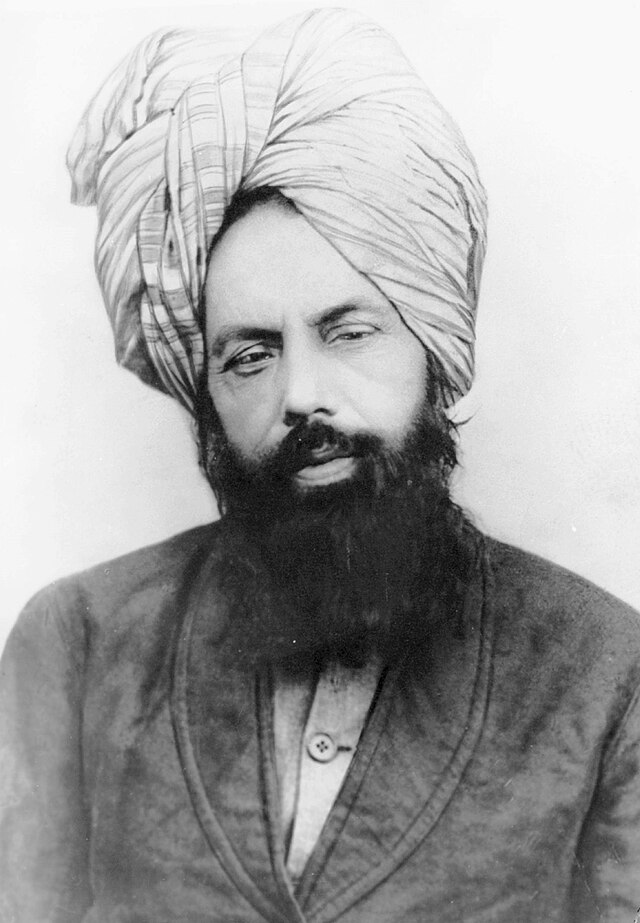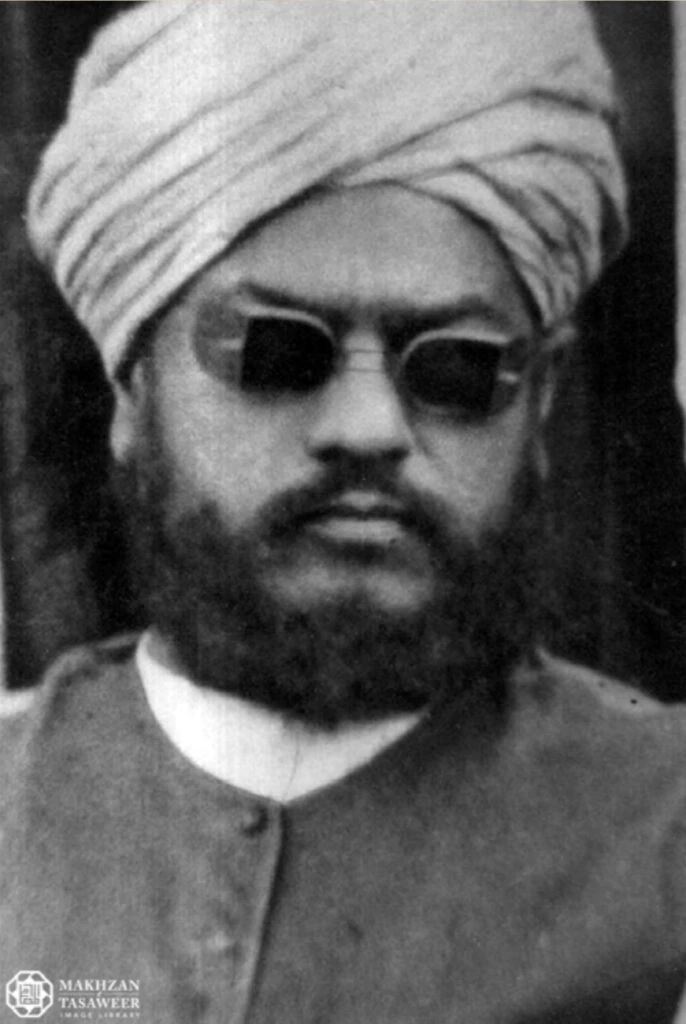
Man is weak. He struggles and grapples with natural urges of anger at times. It’s a constant back and forth of irritation and self control.
A few days ago, I was running late to the mosque and was stuck behind a slow car for miles. I found this irritation creeping within me and eventually I was at a crossroads. Do I maintain my composure or give in to the urge?
Researchers have noted the rise of such occurrences. A poll conducted by National Public Radio and IBM Watson found that some 84% of people surveyed said Americans are angrier today compared with a generation ago.
Similarly, Harvard Medical School has found that nearly two-thirds of U.S. adolescents have experienced an anger attack that involved threatening violence, destroying property or engaging in violence toward others at some point in their lives.
One of the prominent companions of the Promised Messiah (peace be upon him) and among the greatest scholars of Islam, Hazrat Maulvi Abdul Karim Sialkoti (may Allah be pleased with him) has explained that, “There is primarily one dangerous weakness that ought to be reformed and which is the root of all internal disorder. What is that weakness? It is the habit of constant criticism and to be quickly irritated. These flaws characterize a mean and narrow hearted person about whom it can easily be concluded that they live a life of hell” (Life of the Promised Messiah, pg 23).

Is being irritated quickly not but another name for short temper? If we aspire to break free from the shackles of hell in this world, we must rid ourselves from the sway of anger.
The Quran is clear on this topic.
وَسَارِعُوۡۤا اِلٰی مَغۡفِرَۃٍ مِّنۡ رَّبِّکُمۡ وَجَنَّۃٍ عَرۡضُہَا السَّمٰوٰتُ وَالۡاَرۡضُ ۙ اُعِدَّتۡ لِلۡمُتَّقِیۡنَ
الَّذِیۡنَ یُنۡفِقُوۡنَ فِی السَّرَّآءِ وَالضَّرَّآءِ وَالۡکٰظِمِیۡنَ الۡغَیۡظَ وَالۡعَافِیۡنَ عَنِ النَّاسِ ؕ وَاللّٰہُ یُحِبُّ الۡمُحۡسِنِیۡنَ
Addressing the believers Allah enjoins, “And vie with one another in asking for forgiveness from your Lord, and for a Paradise whose price is the heavens and the earth, prepared for the God-fearing. Those who spend in prosperity and adversity, and those who suppress anger and pardon men; and Allah loves those who do good” (3:134-135).
If we desire to enter into paradise or earn Allah the Almighty’s love we must suppress our tempers and pardon those who may enrage us. The Promised Messiah (peace be upon him) has declared, “The heart which leaps into fury and is enraged when faced with the opposing side is deprived of sagacity. And the mouth that recklessly utters foulness is deprived of perspicacity. Anger and wisdom do not go together. A short-tempered person is foolish and dull in perception. He does not ever triumph in any field” (Malfuzat Vol 5, Pages 126-127).
A life of hell, deprivation of God’s love and pleasure, bereft of wisdom and perception. These are all consequences of dealing with untamed anger.
Hazrat Maulvi Abdul Karim Sialkoti (may Allah be pleased with him) has written in his book “Life of the Promised Messiah” that through witnessing the conduct of Hazrat Ahmad (peace be upon him) and self reflection, he was able to improve his own spiritual condition. Perhaps by reading a few such accounts of the Promised Messiah (peace be upon him), we too may improve our spiritual states and begin the journey to break free from the shackles of immorality.

Hazrat Maulvi Abdul Karim Sialkoti (may Allah be pleased with him) narrates one brilliant story, “it so happened that during the days when His Holiness (peace be upon him) was writing At-Tabligh, Maulvi Nur-ud-Din Sahib came to see the Promised Messiah (peace be upon him). His Holiness (peace be upon him) had penned a very important two-page exposition and he felt a sense of pride on account of the eloquence and articulacy with which God Almighty had graced his writing. The text was to be given to me for translation into Persian…His Holiness (peace be upon him) handed the papers to Maulvi Sahib so that he could read them and then give them to my humble self. On the way, Maulvi Sahib accidentally dropped these papers and upon returning to our abode, he took a seat. His Holiness (peace be upon him), as was his custom, went into his private quarters. I mentioned to someone that today His Holiness (peace be upon him) has not sent any pages of text; the scribe is after me and I still have to translate the relevant text. As I caught sight of Maulvi Sahib, his face was turning pale. With extreme anxiety, Maulvi Sahib rushed people back on our steps and said: “Hurry, stand up, the papers have fallen somewhere along the way.” Maulvi Sahib was mortified and worried beyond measure. He thought to himself, what a humiliating oversight; what will His Holiness (peace be upon him) think about me and how utterly irresponsible I am in that I could not even hold on to one piece of paper—and such an important paper at that. When His Holiness (peace be upon him) was informed about this, he came out as normal, with a cheerful face and a gentle smile, and instead sought pardon and said: “Maulvi Sahib, you have suffered such grief on account of the paper being lost. I regret that you underwent such struggle and toil in search of these papers. It is my belief that Allah the Exalted will bestow upon me something better” (Life of the Promised Messiah, pg 35-36).
If you were in the midst of an assignment, not just any assignment but one that you felt was done in an especially excellent manner, how would you react upon learning that it was lost? All those hours and hours of work – gone. Huzoor’s (peace be upon him) example is the standard of self restraint and patience we are striving to achieve. An unwavering trust in Allah and an unshakeable core of morality.
Hazrat Maulvi Abdul Karim Sahib (may Allah be pleased with him) continues, “On one occasion, the Promised Messiah (peace be upon him) was suffering from a severe headache and I was also sitting with him inside. Nearby, there was excessive noise and disturbance. I submitted: “Your Holiness, this noise does not cause you pain, does it?” The Promised Messiah (peace be upon him) said: “Yes, it gives me relief when they quiet down.” I said: “Why does His Holiness not instruct them then?” His Holiness (peace be upon him) said: “You tell them in a gentle manner; I do not have the heart to say anything to them.” Even in the severest of illnesses, he will be all alone in a small room, and he will stay there so silently, that one would think he is comfortably asleep. He will not complain to anyone for not giving him attention, or for not offering him water, or for not tending to his other needs” (Life of the Promised Messiah, pg 37).
When we are battling an illness, it is very easy, in fact it is common for one to become irritable and demand that their needs are given preference. Just recall the last illness you dealt with and see if you ever faced this temptation. Going forward, it is our obligation to emulate the model of Hazrat Ahmad (peace be upon him) and suppress any tempers which flare.
In a Friday Sermon, Huzoor e Anwar (may Allah be his Helper) pointed out that it is our duty to completely abide by our teachings. If we look at other faiths such as Christianity they too preach peace and love, and many live by it. What is the difference between us and them if we still bicker and argue. He explains that our truth will be evident when we practice what we preach to such an extent that such practices are completely gone or at the very least unrecognizable (Friday Sermon, October 10, 2014).
One scenario which commonly tempts us towards anger can be found in our very homes. Often nowadays with people working from home or studying at home, we require complete silence to complete our work. If even a conversation is being held, our concentration breaks and we get distracted from the task at hand which can very easily lead to yelling and lecturing. Such predicaments arose throughout the life of the Promised Messiah (peace be upon him) too. In fact it occurred as he carried out his divine mission and fought the Jihad of the pen.
Hazrat Abdul Karim Sahib Sialkoti (may Allah be pleased with him) narrates, “I have observed His Holiness (peace be upon him) when he is absorbed in writing the most subtle and intricate of expositions—at times even his matchless, most articulate of books in the Arabic language. Nearby a chaotic uproar may be ensuing in full surge, children or simple women may be arguing with one another disrespectfully, or yelling; other ladies may even be engaged in altercation as women do. However, His Holiness (peace be upon him) will continue writing and remains so absorbed in his work as though he was sitting alone in quiet seclusion. All of his unparalleled and magnificent books in Arabic, Urdu and Persian were written in these sorts of circumstances. On one occasion, I asked the Promised Messiah (peace be upon him): “In such noise does His Holiness not feel the least disturbed in writing or thinking?” He smiled and said: “I do not hear them, why and what sort of disturbance could this cause me?” (Life of the Promised Messiah, pg 33-34).
One could argue that the Promised Messiah (peace be upon him) would be justified in yelling at the members at his household for providing such a tumultuous background to such important work. Yet, he always exercised patience and self control. This provides us with a roadmap on how to live our lives. Perhaps we are not blessed with the focus of Hazrat Ahmad (peace be upon him), but if we require quietness it must be achieved in a kind and caring manner.
If one were to study the biography of the Promised Messiah (peace be upon him) we would see that he faced countless trials from false cases aiming to slander his character, abuse from opponents from all sections of society, many assassination attempts, ridicule and persecution from seemingly every faith. But despite that, he never let his anger come out. He completely subdued it.
Huzoor-e-Anwar (may Allah be his helper) has made it clear for all of us, “Huzoor said the sphere of the forgiveness of the Muhammadan Messiah is worldwide and thus we too need to widen our scope of compassion. And if we wish to attain beneficence from the light of God these are the standards we need to meet. We need to instill patience, fortitude and even mindedness. If we wish to utter words of wisdom and discernment and take the mission of the Promised Messiah (peace be upon him) forward, we need to shun harshness and anger in our daily life with family as well as outside family…If we wish to become true believers we have to employ our capabilities at the right time and place.” (Friday Sermon, October 10, 2014)
When I felt that agitation flaring within me while driving, I thought of the examples displayed by the Promised Messiah (peace be upon him) and by God’s grace vanquished that sensation. Through pondering over his outstanding guidance others can overcome such trials as well.



